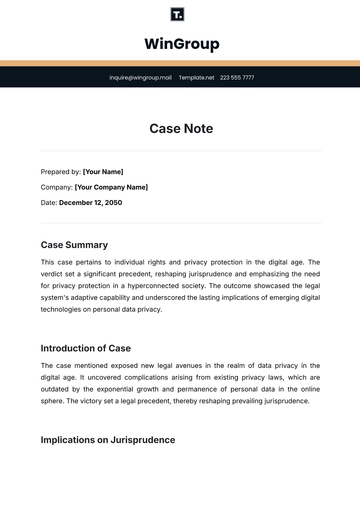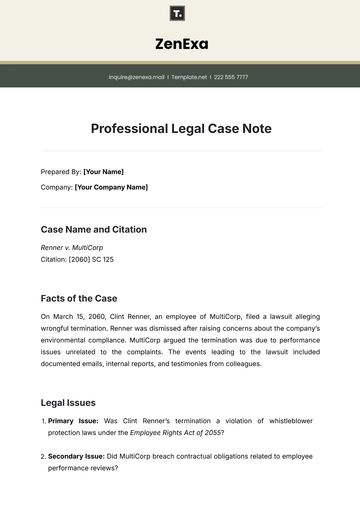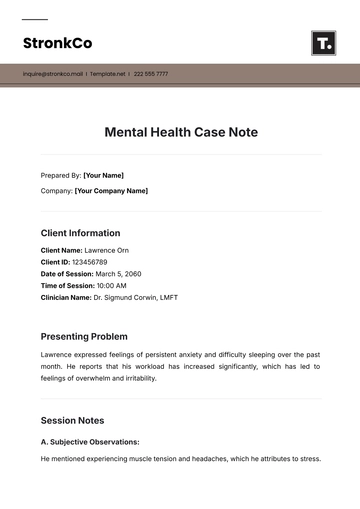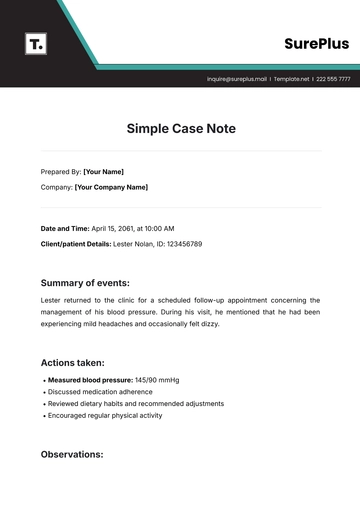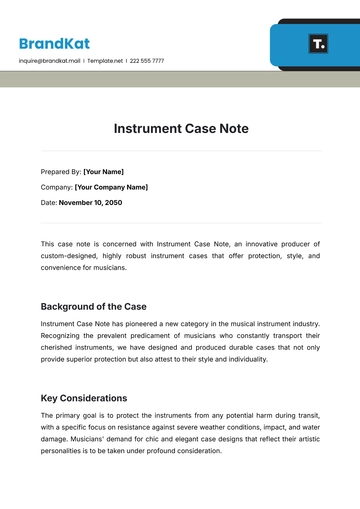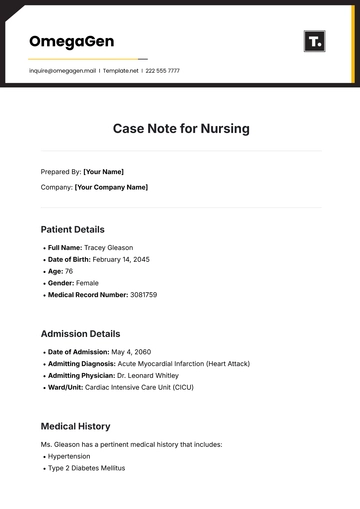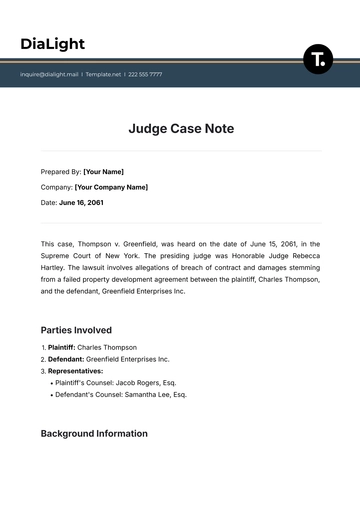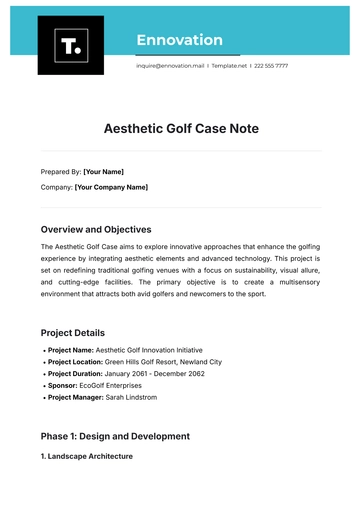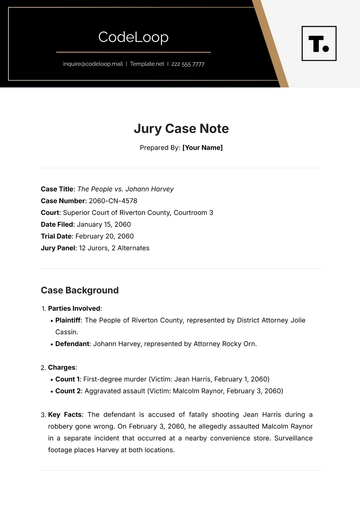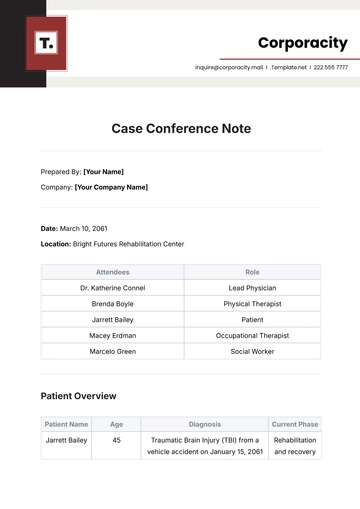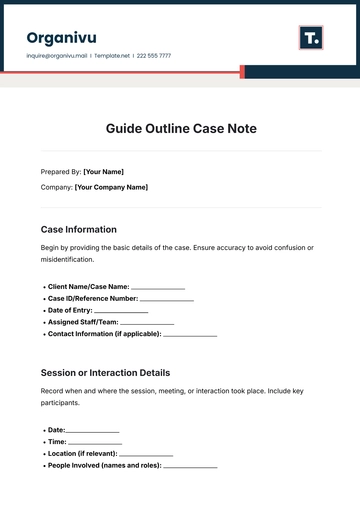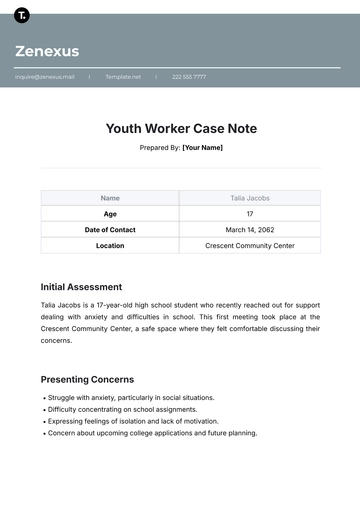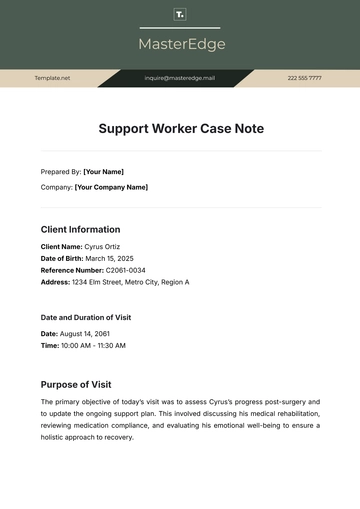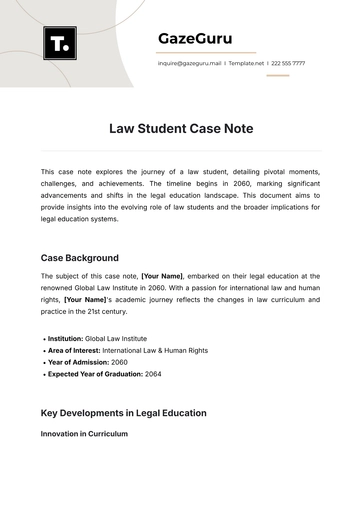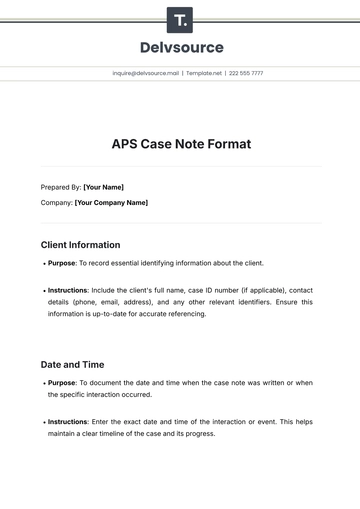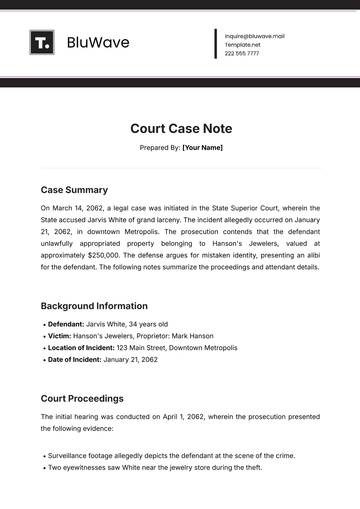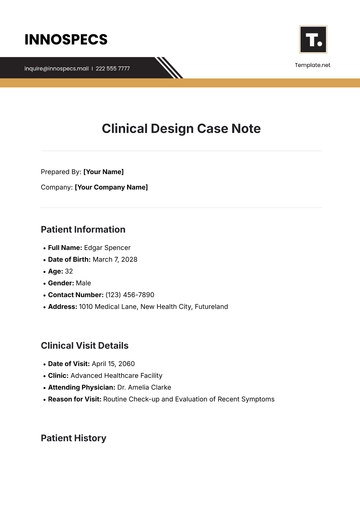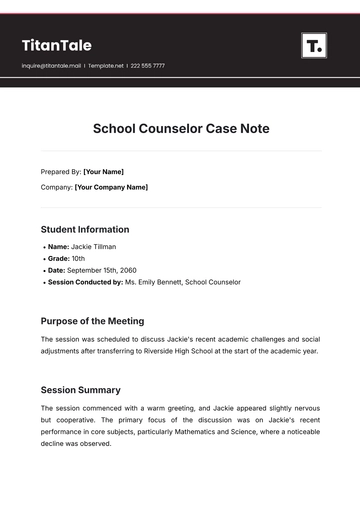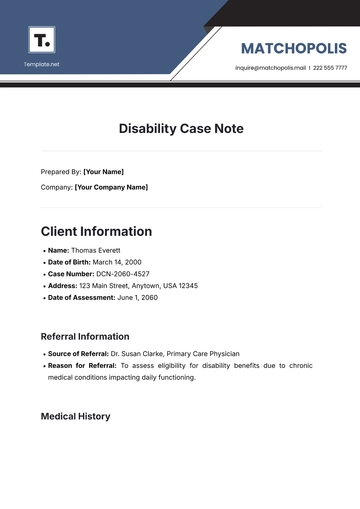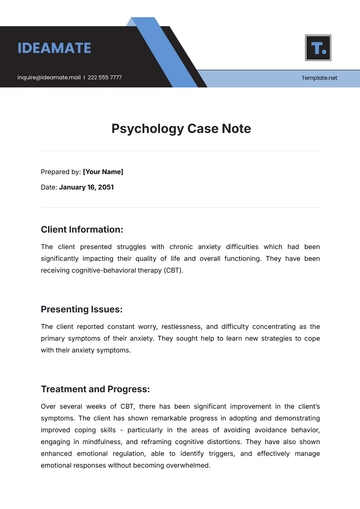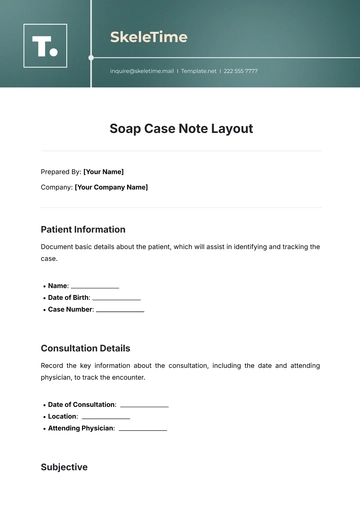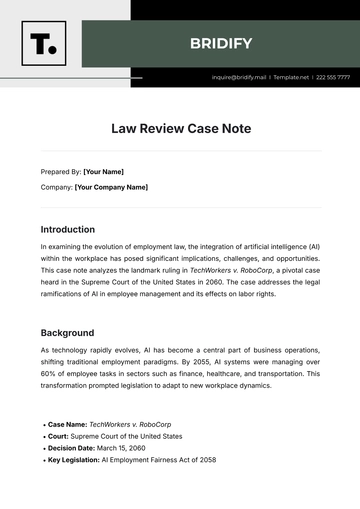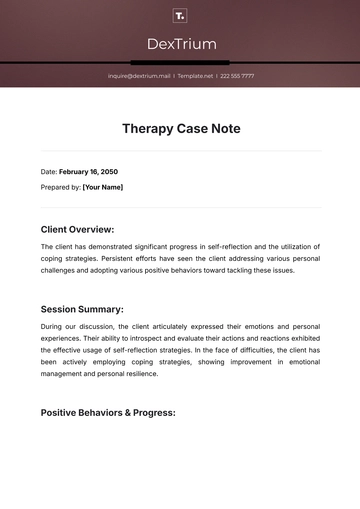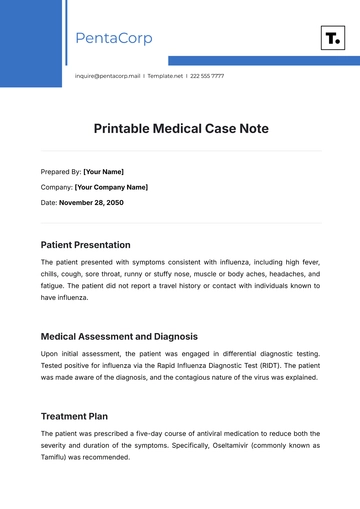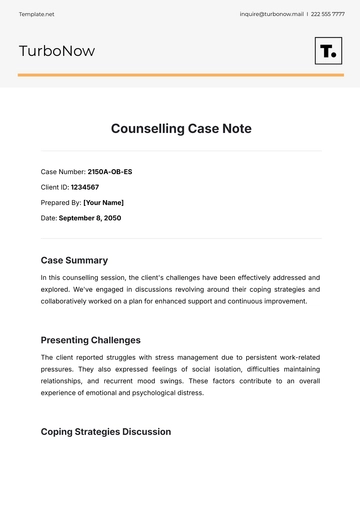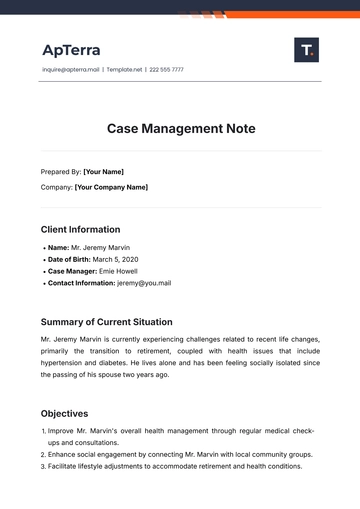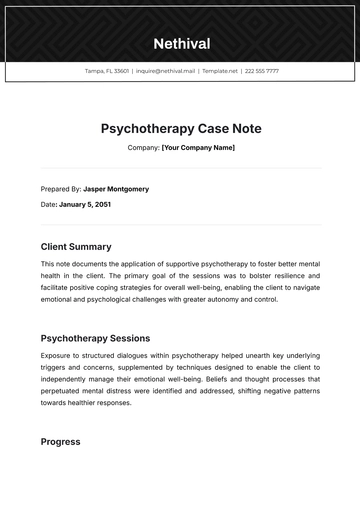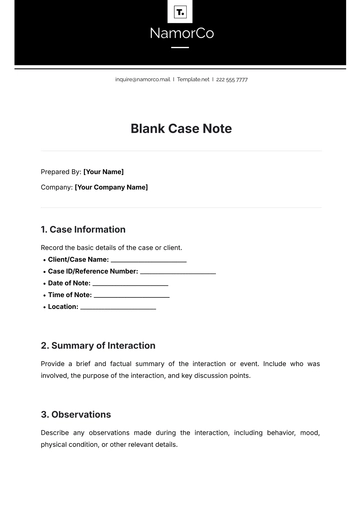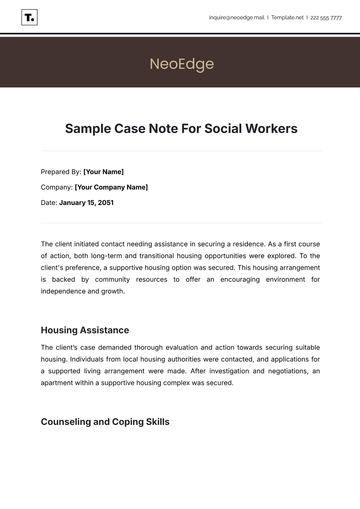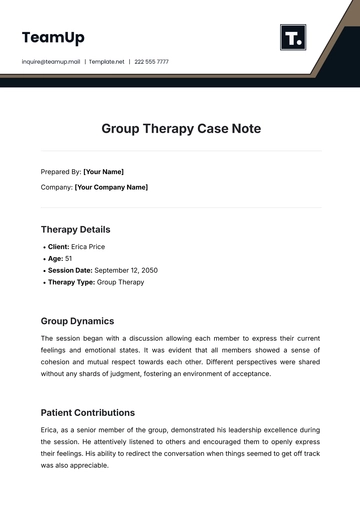Free Law Student Case Note
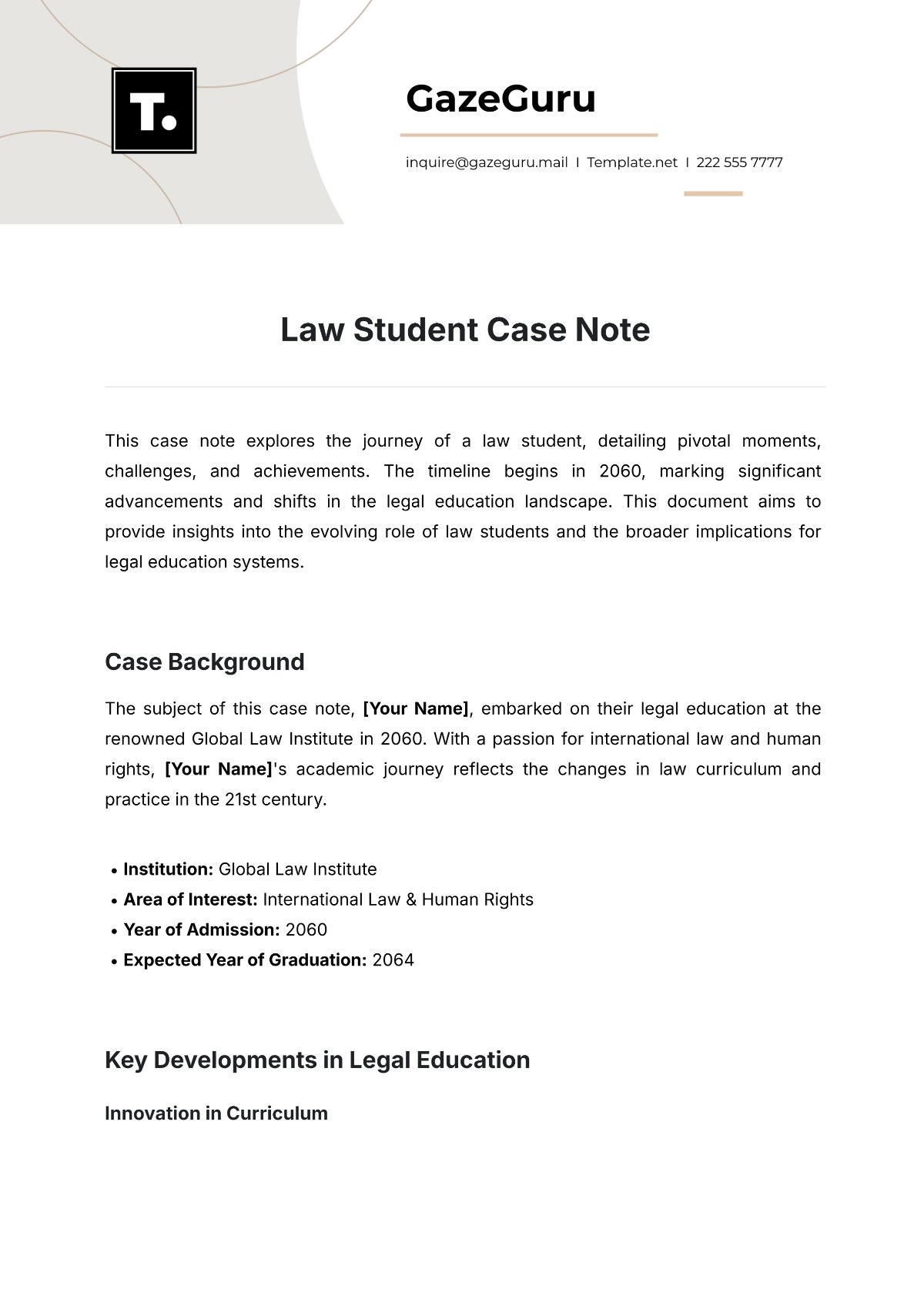
This case note explores the journey of a law student, detailing pivotal moments, challenges, and achievements. The timeline begins in 2060, marking significant advancements and shifts in the legal education landscape. This document aims to provide insights into the evolving role of law students and the broader implications for legal education systems.
Case Background
The subject of this case note, [Your Name], embarked on their legal education at the renowned Global Law Institute in 2060. With a passion for international law and human rights, [Your Name]'s academic journey reflects the changes in law curriculum and practice in the 21st century.
Institution: Global Law Institute
Area of Interest: International Law & Human Rights
Year of Admission: 2060
Expected Year of Graduation: 2064
Key Developments in Legal Education
Innovation in Curriculum
In 2060, legal education transformed, focusing on experiential learning and interdisciplinary studies. Courses integrated technology with traditional legal studies, preparing students for a digitized legal world.
Introduction of AI-Powered Legal Research Tools
Blockchain & Smart Contracts as Core Subjects
Emphasis on Global Legal Systems and Ethics
Experiential Learning
[Your Name] participated in hands-on legal clinics, gaining real-world experience. These programs, mandatory by 2061, provided students with opportunities to work on cases under supervision.
Participation in Moot Courts and Simulated Trials
Internships with International Human Rights Organizations
Engagement in Community Legal Services Projects
Challenges Faced
Despite the advancements, law students faced unique challenges:
Adapting to Rapid Technological Changes
Balancing Online and In-Person Learning Environments
Navigating the Complexities of International Law Post-Pandemic
Achievements and Recognition
[Your Name]'s dedication led to numerous accolades:
Awarded the 2062 Global Law Students Award for Excellence
Published Research on the Impact of AI in Human Rights Law
Lead Delegate in the 2063 UN Model Conference
Implications for the Future
[Your Name]'s journey highlights essential insights into the future of legal education:
Integration of Technology and Law is Imperative for Future Curriculum
Experiential Learning is Crucial for Practical Understanding
Global Cooperation and Multidisciplinary Studies will Define Modern Law Practices
Conclusion
This case note underscores the dynamic nature of legal education in the 2060s, emphasizing innovation, adaptation, and foresight. As future law students navigate these evolving landscapes, their role remains pivotal in shaping a just and equitable society.
- 100% Customizable, free editor
- Access 1 Million+ Templates, photo’s & graphics
- Download or share as a template
- Click and replace photos, graphics, text, backgrounds
- Resize, crop, AI write & more
- Access advanced editor
Elevate your legal studies with the Law Student Case Note template from Template.net. This editable and customizable document ensures precision in your case analysis. Crafted for efficiency, it's seamlessly editable in our AI Editor Tool, empowering you to tailor your notes with ease and precision. Enhance your legal journey today!
You may also like
- Delivery Note
- Notes Release
- Concept Note
- Class Note
- Hospital Note
- Apology Note
- Credit Note
- Handover Note
- Personal Note
- Excuse Note
- Case Note
- Sample Doctor Note
- Lesson Note
- Appointment Note
- Piano Note
- School Note
- Progress Note
- Business Note
- SOAP Note Templates
- Therapy Note
- Briefing Note
- Summary Note
- Sample Note
- Printable Note
